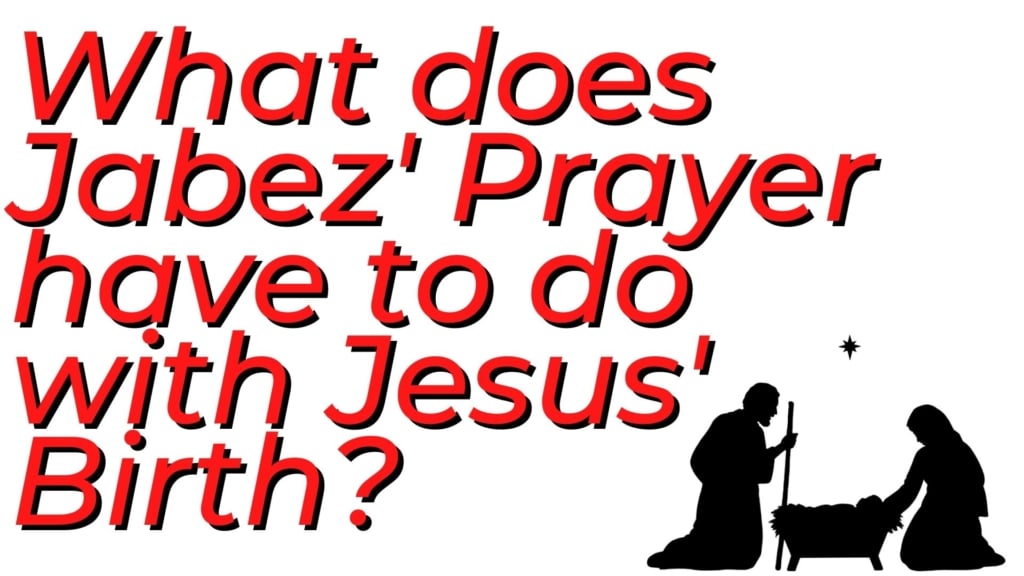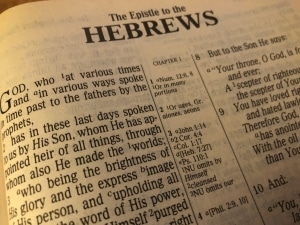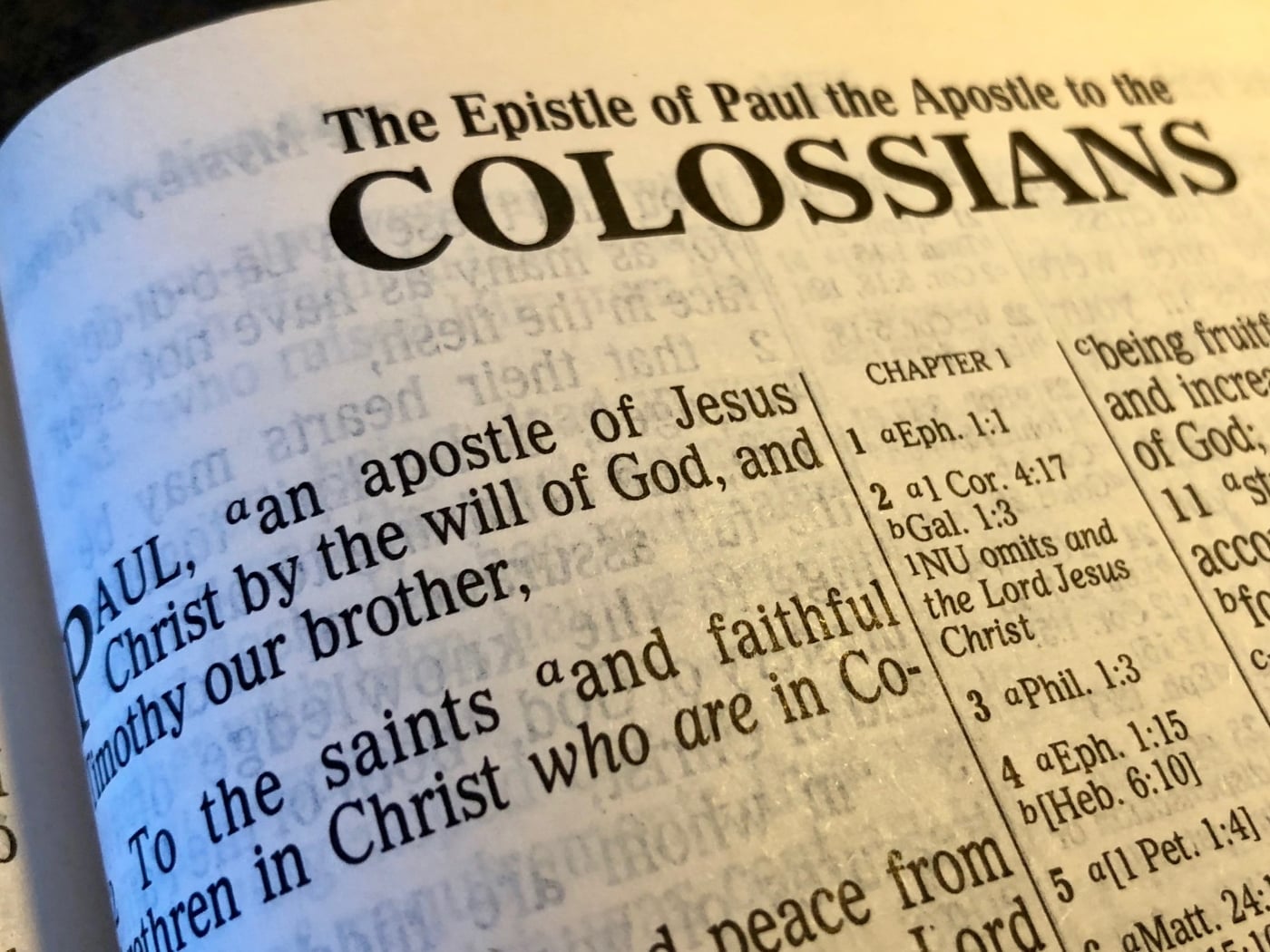This video was extracted from original audio “The First and Last Christmas“
We rightly love the Christmas Story. We know that God arranged the whole scene, but few know the connection to Jabez’ prayer nearly two millennia earlier. “And there were shepherds living out in the fields nearby, keeping watch over their flocks at night. An angel of the Lord appeared to them, and the glory of the Lord shone around them. And they were terrified. But the angels said to them, Do not be afraid. I bring you good news that will cause great joy for all the people.” The phrase, “living out in the fields” is the word, “Agrueleo,” and is only used in this place in the New Testament. An active participle, it indicates that this was their habitual practice. In other words, they always lived in the fields. That was their home. These shepherds were the shepherds that raised the lambs that were sacrificed in the temple. But again, why was their permanent residence in the field? Even to this day, if you go to Israel and the guides will lead you to the area outside of Bethlehem, and it’s called the Shepherds Fields. Why were they there?
In Genesis 35:19-21, after Rachel died and Jacob buried her, he traveled a little bit further and he pitched his tent in beyond the Tower of Eder.Why is that important? Because “Eder” means the flock, and it’s actually picked up later in a prophecy in Micah 4:8, which says, “O Tower of the Flock, the stronghold of the Daughter of Zion to you, shall it come (or to you he shall come.)” And this, of course, connects with Luke Chapter 8, because as we read later on, Jewish tradition made this tower Jesus’ birthplace this long before Christ came into the world. Who built this tower? We don’t know. But going all the way back now to the time of Abraham, 2000 years before Christ a tower was erected, Jewish rabbis said it’d be the site where the Messiah would come. Jerome, in the fourth century saw in this tower the foreshadowing of the announcement of the birth of the Lord Jesus Christ to the shepherds, the ones that kept living in the fields. Today it answers to a place called Khirbet Sara, which is called “The Ruin of the Sheepfold.” It’s very interesting that archeologists have gone to this place, and they have found all kinds of Christian artifacts showing that early on this was a place of worship.
1st Chronicles 4:9 reads, “Jabez was more honorable than his brothers. His mother called him Jabez saying, because ‘I bore him in pain.’” Kind of a rough name to give to a kid because it basically means he causes pain. “Jabez called on the God of Israel.” Now this is a noble, honorable man, according to Scripture, and he prays “that you would bless me indeed, and enlarge my territory, that your hand would be with me, that you would keep me from evil, that I may not cause pain.” Basically, he prays “I don’t want to live up to my name.” We have to understand that in Hebrew thought the name your parents gave you was actually the name God already had planned for you before you were born, and it described your character. We see that playing out a lot in Scripture, in the names that were given to people. Jabez did not want to live up to his name. He did not want to be a source of pain. And then it says, “and so God granted him what he requested.” He requested God’s blessing for enlarged territory. Jabez was not praying for literal territory when he prayed that God would enlarge his territory or enlarge his holdings. He was an honorable man. He was a noble man. He was thinking in spiritual terms. Which would you rather have? A big ranch or eternal impact? What would you rather have? Would you rather have holdings in this world? Or would you rather have impact in history and reward and eternity? Jabez was praying for something much, much bigger, than what most people think of.
How do we know that God answered this prayer? And why in the world will this relate to the shepherds in the field? Well, if you just slide over to 1st Chronicles 2:54-55 which says, “The sons of Salma were Bethlehem, the Netophathites, Atroth Beth Joab, half of the Manahethites, and the Zorites. And the families of the scribes who dwelt at Jabez were the Tirathites, the Shimeathites, and the Suchathites. These were the Kenites who came from Hammath, the father of the house of Rechab.” you know, the Kennites were not Jews. They came from Moses, father-in-law, Jethro, who came from Hamath, the father of the House of Recab. Now, I know you think that we’ve already lost the trail, but we’re just closing in on it. The Tower of Eder, which stood just outside the village that later is called Bethlehem, was the former site of a village of Jabez. Jabez’ Prayer began by a village being named for him near the Tower of Eder. And who were the Kennites? Not Jews, but people who later actually married into the Levitival priesthood. Notice the important words here. They were scribes who dwelt at Jabez. The job of the scribe was to copy the scriptures, to study the Scriptures and to teach the Scriptures.
The beginning of the answer to Jabez prayer was a group of people, not even Jews, but proselytes, who came in because of faith, and they became the leading Bible scholars of their time. It tells us at the end of the verse as well that they were of the House of Recab. 1500 years later, in Jeremiah 35, we see more of the Recabites. Jeremiah wanted to use these people as an example to the children of Israel of what faithfulness should look like. Jeremiah is told, “bring them into the House of the Lord, into one of the chambers, and give them wine to drink.” So, Jeremiah said, “I took Jaazaniah the son of Jeremiah. The son of…” who and who….“His brothers and all his sons, the whole house of the Rechabites. I brought them into the House of the Lord, into the chamber of the Sons of Hanan, the son of Igdaliah.” They really get into the genealogies here. “A man of God, which was by the chamber of the Princes above the chamber,” and so on and so forth. Verse five says, “I set before the sons of the house of the Rechabite bowls full of wine and cups, and I said, ‘Drink wine.’” Jeremiah’s doing what God commanded him to do. “But they said, we will drink no wine for Jonadab, the son of Rechab.” Once again, keep in mind the link back to First Chronicles. “Our father commanded us saying, ‘You shall drink no wine, you nor your sons forever.’” That was not the only requirement he placed on them, however. Verse seven says, “You shall not build a house or sow seed or plant a vineyard, nor have any of these. All your days you shall dwell in tents that you may live many days in the land where you are sojourners.”
The Rechabites through all their generations, became shepherds and lived in tents. And as we come down to Jeremiah’s commendation of these people, he says in verse 16, “Surely the sons of Jonadab, the son of Rechab, have performed the commandment of their father, which he commanded them. But this people, meaning Israel, God says, has not obeyed me. Therefore, thus says the Lord God of hosts, the God of Israel. Behold, I will bring on Judah, all the inhabitants of Jerusalem, all the doom that I have pronounced against them, because I have spoken to them, but they have not heard. I have called to them, but they have not answered. And Jeremiah said to the House of the Rechabites, “Thus says the Lord God of hosts the God of Israel, because you have obeyed the commandment of Jonadab your father and kept all his precepts have done according to all that he commanded you. Therefore, thus, as the Lord God of host the God of Israel, Jonadab, the Son of Rechab shall not lack a man to stand before me forever.“
Can you connect this unique group of people who took a vow that they would always remain nomads and shepherds who were linked to the village that once stood slightly outside of Bethlehem, all the way down to the shepherds that ultimately stood before the Lord. According to this promise. “He will not like a man to stand before me.” By the way, the phrase stand before me has a priestly connotation. My conviction is that these shepherds were living in the same place they had always lived, lived in the same way they had always lived, were doing the same things they had always done, continued to remain students of God’s word. Obviously. And they were the first ones that were invited to meet the Savior as he entered the world. That’s pretty amazing. But it’s not as amazing as what happened and what they witnessed.
You know, Paul captures the first Christmas in a way this the simple story can’t. We love the story in its simplicity, its oriental beauty, and it’s so amazingly beautiful, but it doesn’t come close to capturing what that little child represented. When Paul tells us in Philippians 2:5, “Let this mind being you, which was also in Christ Jesus, who, although He existed in the form of God, did not regard equality with God a thing to cling to or a thing to grasped. But He made Himself of no reputation and came in the form of a man and being found in existence as a man. He humbled Himself even further unto death. Even the death of the cross.” That all began right here. That was that huge step that our Savior took from his throne in heaven down into this world full of sin, sorrow and suffering. For what? To live a life of rejection. A life misunderstood. A life of slander and maligning. And ultimately, to go to the cross. For you and I. to pay the penalty for our sins, and not just for ours. But as John tells us, “for the sins of the entire world.” We should stand as we do today, preparing to celebrate Christmas with the reverence, amazement, humility. Our souls should be struck with the beauty, but also the grandeur and the greatness of everything that our Savior has done for us.
Gene Cunningham - January 28, 2003
Hebrews 01

Scripture References: Hebrews 12:25-29, Hebrews 6:1-20, Hebrews 9:15, Hebrews 12:1-29, Romans 1:19-20, Hebrews 9:15, Hebrews 10:26-41, Hebrews 5:1, Hebrews 8:6, Hebrews 11:1-40, Romans 11:11-24, Psalms 110:1, Hebrews 6:4-8, Hebrews 4:1-16, Hebrews 7:22, Hebrews 10:1-39, Hebrews 1:1-3, Hebrews 4:1-2, Hebrews 4:1-3, Hebrews 3:3-6, Hebrews 7:19, Hebrews 9:1-28, Hebrews 11:40, Hebrews 3:18-19, Hebrews 2:1-4, Hebrews 2:1-18, Hebrews 6:9, Hebrews 8:1-13, Hebrews 11:16, Colossians 1:18, Hebrews 1:4-14, Hebrews 1:4, Hebrews 7:1-28, Hebrews 10:34, Hebrews 13:1-25, John 19:30, Hebrews 1:1-3







